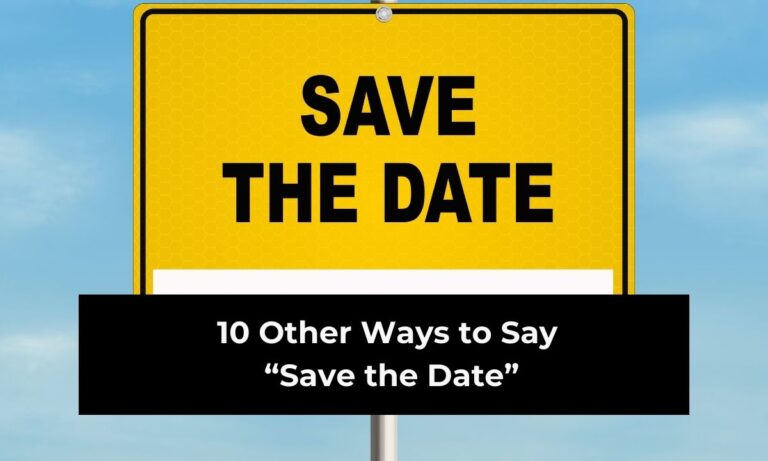When someone you care about is going through a tough time—whether they’re sick, stressed, or just feeling down—you probably want to say something comforting. One of the most common phrases people use is, “I hope you feel better.” It’s short, polite, and caring. But sometimes, it can feel overused or even a little generic, especially if you’re trying to show deeper support and encouragement.
That’s where finding alternative phrases can really make a difference. The words you choose can help lift someone’s spirits, show them that you’re genuinely thinking about their well-being, and even bring a sense of warmth during difficult times. Saying something a little more personal or unique shows that you’ve put thought into your message rather than reaching for the usual phrase.

Think about how you feel when someone says the right words at the right time. Maybe it makes you smile, gives you strength, or simply helps you feel less alone. That’s the power of language—it goes beyond polite wishes and touches the heart.
In this article, you’ll discover 10 thoughtful, creative, and compassionate alternatives to “I hope you feel better.” Each one is explained in detail, so you’ll know when and how to use it in different situations—whether it’s for a friend, a family member, a colleague, or even someone you don’t know very well.

By the end, you’ll have a set of comforting expressions you can use whenever you want to encourage someone who isn’t feeling their best. Let’s dive in and explore these meaningful alternatives.
1. “Wishing You a Speedy Recovery”
When someone is physically unwell—maybe they’ve caught a bad cold, gone through surgery, or are healing from an injury—“wishing you a speedy recovery” is a thoughtful and polite option. Unlike “I hope you feel better,” it focuses directly on their healing process and conveys your genuine desire for them to get back to normal quickly.
You can use this phrase in a card, text message, or even in person. It works well for professional settings too, like when you’re writing to a colleague or client. It’s respectful yet warm and doesn’t sound too casual.
To make it more personal, you can add a little detail about their situation. For example:
- “Wishing you a speedy recovery after your surgery—I know you’ll bounce back stronger.”
- “Wishing you a speedy recovery, and I can’t wait to see you back at work.”
This phrase also works beautifully in sympathy cards because it communicates care without being overly emotional. It’s one of those timeless expressions that strikes the perfect balance between professional courtesy and heartfelt concern.
So, the next time someone in your circle is recovering, swap out the usual “feel better soon” for this thoughtful choice. It not only offers comfort but also shows your respect for what they’re going through.
2. “Take All the Time You Need to Rest”
Not everyone needs encouragement to get back on their feet quickly. Sometimes, what they need most is permission to slow down and heal at their own pace. That’s when “take all the time you need to rest” is a perfect alternative.
This phrase tells the other person that you value their health more than anything else. It acknowledges that recovery is different for everyone and that it’s okay not to rush the process. In a world where people often feel pressured to return to work, school, or daily life quickly, this simple sentence can be a big relief.
Here’s how you might use it in different scenarios:
- To a coworker who’s sick: “Take all the time you need to rest—we’ll handle things until you’re back.”
- To a friend recovering from burnout: “Don’t worry about anything else right now. Take all the time you need to rest.”
It works best when paired with understanding. If you’re close to the person, you might even follow it with an offer to help. For instance: “Take all the time you need to rest. I can drop off groceries if you don’t feel like going out.”
This phrase is not only comforting but also empowering because it validates their need to care for themselves fully.
3. “Sending Healing Thoughts Your Way”
Sometimes, what matters most is letting someone know they’re in your thoughts. “Sending healing thoughts your way” is a warm, caring alternative that works especially well in supportive messages and cards. It creates a visual of positive energy being shared, which can be very uplifting for someone who’s struggling.
This phrase is versatile—you can use it when someone is physically ill, emotionally drained, or even going through a tough personal situation. Unlike “I hope you feel better,” it carries a sense of intentional care, as if you’re actively sending them encouragement.
Examples include:
- “Sending healing thoughts your way as you recover from your surgery.”
- “I know this week has been rough, but I’m sending healing thoughts your way to help you get through it.”
It’s also a comforting choice when you’re not sure exactly what someone is going through but still want to reach out. Instead of guessing their situation, this phrase communicates kindness without overstepping.
By using it, you’re showing that you’re emotionally present and rooting for their well-being. Even if you can’t physically be there, your words serve as a small but meaningful reminder that they’re not alone.
4. “Get Well Soon”
“Get well soon” is one of the most classic alternatives—and for good reason. It’s short, sweet, and universally understood. But just because it’s common doesn’t mean it’s any less effective. Sometimes, people appreciate familiarity when they’re not feeling their best, and this phrase delivers just that.
It works in nearly every context, whether you’re writing a quick note, sending flowers, or leaving a supportive message. Its simplicity makes it easy to use, and it doesn’t require too much explanation.
Here are some examples of how you can personalize it:
- “Get well soon, and don’t worry about the office—we’ll keep things running.”
- “Get well soon, my friend. I miss our coffee chats already.”
Because it’s so well-known, it’s particularly effective in greeting cards, where space is limited. You can even combine it with other supportive words to make it more heartfelt. For instance: “Get well soon—you’re stronger than you know, and I can’t wait to see you back on your feet.”
This phrase may be traditional, but its warmth and simplicity continue to make it a go-to expression when someone needs encouragement.
5. “Take Care of Yourself”
If you want to sound caring without being overly formal, “take care of yourself” is an excellent choice. It emphasizes self-care and well-being, reminding the other person that they deserve to prioritize their health above everything else.
This phrase works well in personal and professional settings alike. For example:
- To a friend: “I know you’ve been stressed lately. Please take care of yourself.”
- To a colleague: “It was great working with you today. Take care of yourself, and I’ll see you next week.”
It’s also flexible—you can use it as a parting phrase in conversations, as a closing line in an email, or as a thoughtful addition to a card. Unlike “I hope you feel better,” it doesn’t directly reference illness or hardship, so it feels more universal.
Adding a small personal note can make it even more impactful. For instance: “Take care of yourself—I know you’re working hard, but don’t forget to rest.”
In short, this phrase communicates concern in a way that’s gentle, versatile, and timeless. It’s a reminder that you value the other person’s health and happiness, not just their presence or productivity.
6. “Rest Up and Feel Better”
“Rest up and feel better” is a casual yet encouraging alternative that works especially well in friendly conversations. It combines the idea of rest and recovery, reminding the other person that healing often starts with slowing down.
It’s the kind of phrase you’d send in a quick text to a friend, sibling, or loved one. It’s warm but not overly formal, making it feel personal and genuine.
Examples include:
- “Rest up and feel better—we’ll plan that dinner once you’re back on your feet.”
- “I know you’ve had a tough week. Rest up and feel better, my friend.”
The beauty of this phrase is that it offers comfort while also encouraging action. It doesn’t just wish them wellness—it gently nudges them to actually take time for themselves.
It’s particularly useful in modern contexts, where people often feel guilty for resting. By saying this, you’re giving them permission to pause and recover without pressure.
If you’re looking for a phrase that blends kindness with casual warmth, this is a wonderful choice.
7. “Thinking of You and Wishing You Well”
Sometimes, people need to know that they’re not forgotten during their struggles. “Thinking of you and wishing you well” is a heartfelt phrase that communicates presence, care, and encouragement. It goes beyond hoping they feel better by letting them know you’re keeping them in your thoughts.
This phrase works especially well in cards or thoughtful notes, but it can also be sent as a text when you want to show genuine concern. It’s perfect for situations where you’re not physically close but want to provide emotional support.
Here are a few ways you can use it:
- “Thinking of you and wishing you well as you recover.”
- “Even though I can’t be there, I’m thinking of you and wishing you well every day.”
It’s a beautiful balance of empathy and positivity. Unlike more clinical phrases, it feels warm and personal, making it ideal for close friends or family.
By using this expression, you’re not just wishing them better health—you’re reminding them that they’re valued and loved, which can be just as powerful in the healing process.
8. “Hope You’re Back on Your Feet Soon”
If you want to add a bit of lightheartedness while still being supportive, “hope you’re back on your feet soon” is a great option. It’s particularly suited for physical illnesses or injuries, where the idea of “getting back on your feet” feels literal and encouraging.
This phrase works well with friends, family, or even coworkers when you want to keep the tone positive and uplifting. It’s supportive without being too heavy, and it often brings a smile to the person receiving it.
Examples include:
- “Hope you’re back on your feet soon—we miss you around here.”
- “Take it easy, and I hope you’re back on your feet soon.”
It’s also a phrase that works well in casual conversations. If someone texts you that they’re not feeling great, replying with this keeps the mood encouraging while still showing care.
By using this, you’re focusing on the brighter side—that their recovery is around the corner and that you’re looking forward to their return.
9. “May You Find Strength and Comfort”
When someone is dealing with something more serious—like a chronic illness, surgery recovery, or emotional struggles—“may you find strength and comfort” is a compassionate choice. It acknowledges their difficulty while offering hope.
This phrase is particularly powerful because it goes deeper than just wishing for wellness. It speaks to both emotional and physical resilience, showing that you care about the whole person.
Examples include:
- “May you find strength and comfort during this healing process.”
- “I know it hasn’t been easy, but may you find strength and comfort each day.”
It works best in heartfelt notes, cards, or messages of encouragement. While it’s more formal than some of the other alternatives, it’s perfect for situations that require extra sensitivity.
This expression goes beyond the surface—it’s about letting someone know that you’re rooting for their courage and inner peace, not just their physical health.
10. “Here’s to Brighter Days Ahead”
When someone is in the middle of a tough time, it helps to remind them that better days are coming. “Here’s to brighter days ahead” is a hopeful, uplifting phrase that focuses on the future rather than just the present.
It works beautifully for both physical and emotional struggles. For instance:
- “Here’s to brighter days ahead—I know you’ll get through this.”
- “Here’s to brighter days ahead. You’ve got so much strength in you.”
This phrase is especially useful when you want to inspire optimism. It shifts the focus from the difficulty of now to the hope of tomorrow. It’s less about the illness or hardship itself and more about the journey toward positivity and healing.
It can be used in a casual text, a supportive email, or even spoken in conversation. Wherever you use it, it leaves the person with a sense of encouragement and light.
By choosing this phrase, you’re not only offering comfort but also reminding them that better things are waiting just around the corner.
Conclusion
Finding the right words to comfort someone isn’t always easy. While “I hope you feel better” is kind and familiar, there are times when you want to express something more meaningful. The phrases we’ve explored—like “wishing you a speedy recovery,” “take all the time you need to rest,” or “here’s to brighter days ahead”—give you options that feel thoughtful, personal, and encouraging.
Each of these alternatives has its own tone, ranging from professional and respectful to warm and deeply personal. Some are perfect for quick text messages, while others work beautifully in heartfelt notes or conversations. What they all have in common is that they go beyond a generic wish and show that you truly care.
The next time someone you know is struggling—whether physically, emotionally, or mentally—you’ll have the right words to offer comfort and hope. And remember, sometimes the most powerful thing isn’t just the phrase itself but the intention and love behind it.
By choosing your words with care, you can brighten someone’s day, encourage their healing, and remind them that they’re not alone. That small gesture of kindness might be just what they need to keep moving forward.
FAQs
1. Is “I hope you feel better” too generic to use?
Not at all—it’s still a kind phrase. But if you want to make your message more personal, try one of the alternatives in this list.
2. Which phrase is best for professional settings?
“Wishing you a speedy recovery” or “take care of yourself” are excellent choices for workplace communication.
3. What can I say if someone is struggling emotionally rather than physically?
Phrases like “thinking of you and wishing you well” or “may you find strength and comfort” work best in emotional situations.
4. How do I make my message more personal?
Add specific details, like referencing their situation or offering help. For example: “Take all the time you need to rest—I’ll cover your shift if needed.”
5. Can I combine phrases for a stronger message?
Absolutely. For instance: “Wishing you a speedy recovery and here’s to brighter days ahead.” This makes your message both supportive and hopeful.





